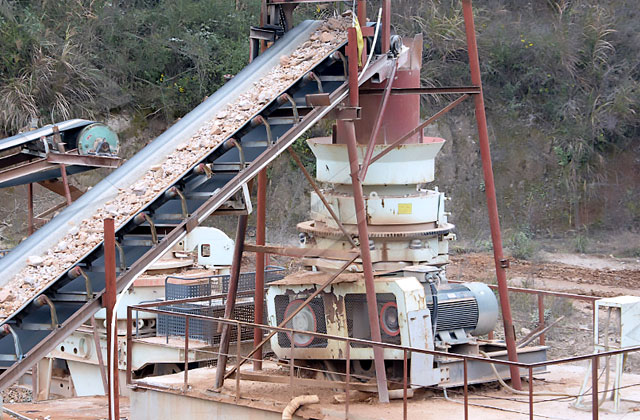Basalt is a hard, dense volcanic rock formed from the rapid cooling of lava. It is widely used in construction, road building, and as aggregate in concrete production due to its high durability and strength. Crushing basalt requires robust, efficient equipment that can handle its hardness and produce consistent, high-quality aggregates. Cone crushers are among the most effective machines for basalt processing, offering significant advantages in terms of performance, versatility, and cost-effectiveness.

Why Choose Cone Crushers for Basalt Processing?
Basalt, with its high compressive strength, presents a significant challenge for crushers. The rock’s hardness means that crushers must have a high level of strength, durability, and operational efficiency to ensure effective processing. Cone crushers are designed specifically to handle such materials, making them ideal for basalt processing. The main reasons for selecting cone crushers for basalt crushing include:
- High Crushing Efficiency: Cone crushers operate on a gyratory principle, compressing materials between a moving cone and a fixed outer cone. This process enables efficient reduction of large basalt rocks into smaller sizes, ensuring uniformity in the final product. Cone crushers have a high throughput and can process large quantities of material, making them ideal for operations requiring continuous, high-volume production.
- Effective Size Reduction: The closed-side setting (CSS) of a cone crusher can be adjusted to provide various sizes of output, which is particularly useful for basalt, where different sizes of aggregates may be required. The crusher can produce finely crushed material for specific applications like road construction, or larger aggregates for use in concrete mixing or building foundations.
- Durability and Longevity: Basalt’s toughness demands crushers that can withstand prolonged use without suffering excessive wear. Cone crushers are known for their robustness and long service life. Many modern cone crushers feature advanced materials in their construction, such as high-strength steel alloys and tungsten carbide, which provide exceptional resistance to wear and abrasion.
- Low Maintenance Requirements: Basalt can be challenging on equipment, but cone crushers are designed for ease of maintenance. Regular maintenance tasks such as checking and replacing wear parts (liners, mantles, etc.) are typically simple and require minimal downtime, reducing the overall cost of operation and improving the crusher’s life cycle.
Key Types of Cone Crushers for Basalt Processing
- Spring Cone Crushers
Spring cone crushers are often used in basalt processing due to their simplicity, reliability, and cost-effectiveness. These crushers are ideal for secondary and tertiary crushing stages and are well-suited to handling medium to hard materials like basalt. - Hydraulic Cone Crushers
Hydraulic cone crushers offer advanced features such as automatic adjustment of the discharge opening, overload protection, and a higher reduction ratio. These features make them particularly effective in basalt crushing, where consistent output size and higher productivity are required.
How Cone Crushers Work for Basalt Processing
Cone crushers function based on the principle of compression. Material is fed into the cone crusher’s chamber, where it is compressed between a moving mantle and a stationary bowl liner. As the material is crushed, it is pushed downward toward the discharge opening. The crusher’s design ensures that the material is progressively crushed until it reaches the desired size.
For basalt processing, cone crushers can handle the hardness and abrasiveness of the rock. The robust construction of cone crushers allows them to withstand the high pressure required to crush tough basalt rock, and their continuous operation ensures high throughput and productivity.
